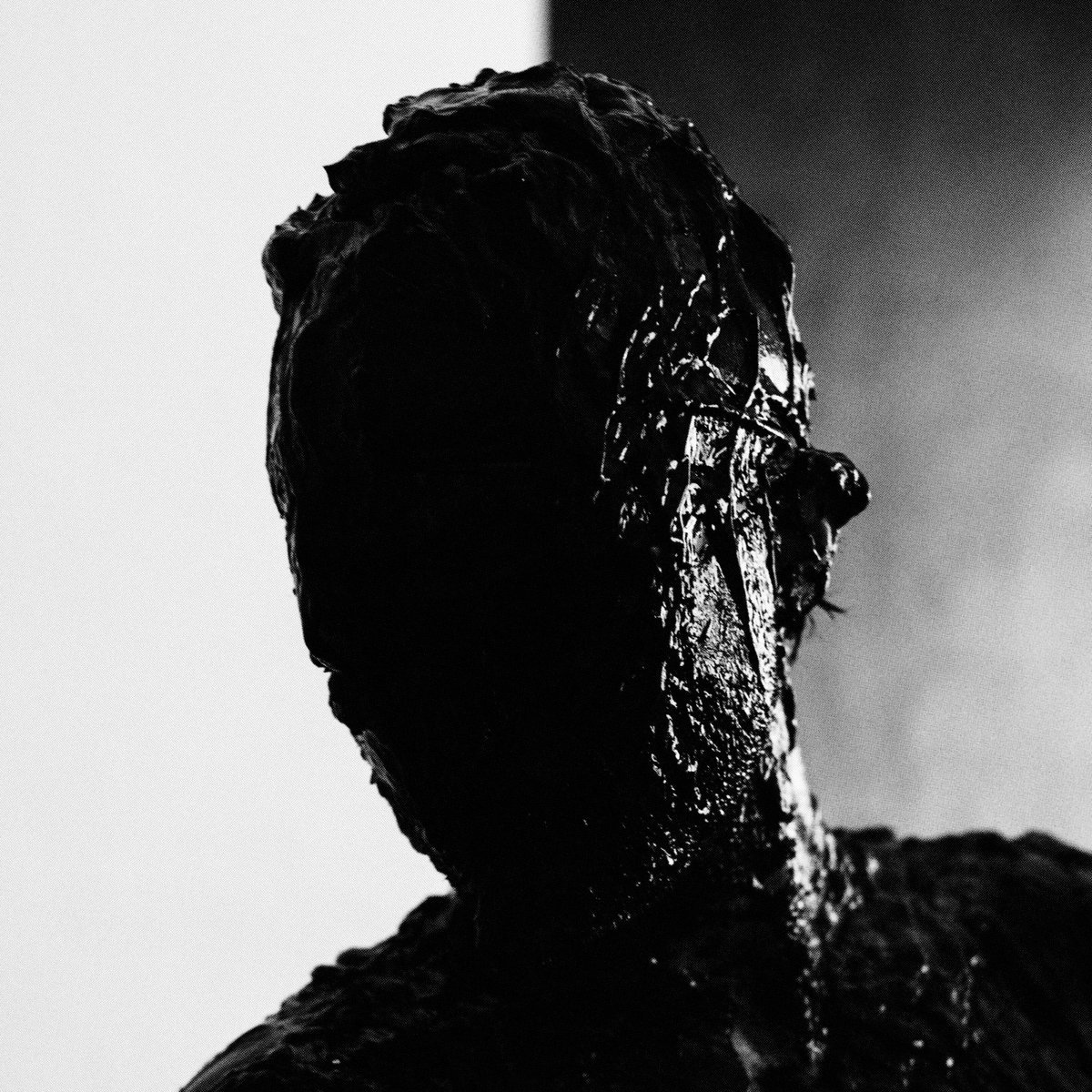In the past few years, I’ve been on a serious path of endless discoveries thanks to taking the plunge into the world of experimental electronic music. It seems that the concept itself is a magnificent gift that just keeps on giving, and whenever I feel like testing the waters and scouring some playlists or whatever else, I tend to always find something fascinating. Add to that the weight of randomly coming across wonderful shit in that vein, and the musical scales really tip heavily towards the end that celebrates all things electronic. Of course, it goes without saying that there’s levels to everything, and even though there’s so much great stuff out there, the well runs deep and the slots for momentous, psyche-altering, and mountain-moving pieces of excellence are limited. Today’s featured artist is one of those, who came out from nowhere and immediately cemented itself as an all-timer for me, and my missive by the end of this piece is that it’ll prove to be one for you, too.
Thomas Feriero, the Italian-based electronica musician has been working under a multitude of aliases for significant labels and events for the past fifteen or so years, alongside running the exquisite label Veyl (you can just browse through their roster and click on anything you see, and I guarantee you’ll have a great time with it). But today is all about one particular project of his that emerged in 2018 as a mash-up vessel filled to the brim with tonalities ranging from EBM and jungle to hardcore punk, metal, and everything in between – Maenad Veyl.
Maenad Veyl is not only eloquently produced ear candy and a working mixture of a multitude of vastly differing aural facets, but an effective singular entity and an experience that bears weight on all fronts from the general aesthetic to the deep-cutting hooks spread out evenly yet generously across everything that he does. The main tonal umbrella relies quite a bit on the more ominous and darker end of the scope, and I recall that when I once recommended the project to a friend of mine, I said it’s really a soundtrack to the most gripping nightmare you’ve ever experienced, but in a way where you’re actually enjoying it. Sound weird enough?
The safely suffered state of psychosis that Maenad Veyl essentially is, couldn’t possibly be as pervasive as it is if it wasn’t for the artist’s will to push the envelope of what can be seen as a modest advancement or expected trajectory with other artists and their doings. Instead of taking the more commonplace route of doing an album’s worth of this and then another one’s worth of that, Maenad Veyl treats each of its songs as an individual work of art that ultimately leads albums and EPs that can barely be explained in a fathomable manner, without adding a ‘just listen to it’ disclaimer after every sentence. So yeah, just take a listen and you’ll immediately know what I’m talking about.
The project’s first outing came in the form of a split EP with the frequent collaborator-to-be Years of Denial on Death & Leisure on 2018, and was followed up with a string of lengthy EPs throughout the year. I won’t go into detail with each those, but you can take it as gospel that all of those smaller scale releases are absolutely essential listening as far as Maenad Veyl is considered, and you can hear how early on the artist already had established an extremely singular identity with his doings. Perhaps the biggest (well, I say that with very little importance) difference is that the first line of releases mostly reside in the body music realm, with some eerie undertones of what’s ahead already embedded in them. And what was ahead? The project’s first full-length, the 2019’s Body Count.
Fuck. Me.
I remember it as if it was yesterday when I first heard the opening feedback-y industrial rhythm of the opener track “Bleak”, and how I was simply glued down on my sofa for the ensuing fifty-four or so minutes. The mid-tempo opener established the framework for the entirety, mainly in an only-expect-the-unexpected way, and my god was there twists and turns ahead of me. The haunting pulses of “Unhealed” turned my gawk into a smirk, and by the third track “The Adversary” and its unfathomably awesome noise leads, I was permanently hooked to whatever the hell this is. The techno oriented noisy IDM and industrial hues make Body Count a thrilling listen, setting it apart from a wide array of others by means of substance and enjoyability. The components that so firmly click together here are the kind you’d never expect to work together, and that’s really the beauty of it.
There’s equal amounts of moments of absolute savagery as there are those of utter stillness, the latter exemplified by such tracks as “Out of Sight”, where Maenad Veyl decides to stall the engine and just keep on pushing and pushing, adding more elements and nuances on top of each other momentarily while stripping others away, making it feel like the listener’s embedded in a single second lasting for an eternity. On the contrary, we get moments of rewarding pure catharsis as well, with something like “Heart of a Machine” on the forefront. That song alone plays on repeat a few times every fucking time it comes along, probably due to the fact that it could run ten times as long as it does on the album and still be a wonderful breath of acrid air amidst everything else. Another trance-inducing effort to underline would be the closer “Permanent Disrepair”, that’s just like clubbing in a dark venue while the world around you just burns down to a pile of scorched ruins.
The album got plenty of deserved praise, granted that I could argue it should’ve broken into electronic enthusiasts’ collective psyche even more than it did, and Maenad Veyl went on to release the four-song EP Onto Duat later that same year. For me personally, Onto Duat felt like a continuation piece for Body Count, placing the emphasis on more driving pulses and synth-heavy execution. The last song “Riot Patrol” is some of the downright nastiest danceable stuff you could possibly imagine for an example, and gives me the chills every fucking time. More of this please.
More, you say? Following in 2020, Maenad Veyl‘s second full-length Reassessment came out to somehow shuffle things up even to a greater extent. The thirteen tracks evoke a completely different ambiance than Body Count did. While recognizable and very much sharing the identity of his previous doings, Reassessment unites the pounding techno beats with emotive, scraping soundscapes and field recordings (I think), that amp up the organic aspect of Maenad Veyl‘s doings to an unprecedented degree, adding in equal amounts of mass and dread. “Walls Fell Inwards”, “Drawn In”, and “Self Help” make perhaps the clearest strides towards this fresh spectrum, just as a side note.
Reassessment does abide to its title on a few fronts, and definitely not in the least due to the most obvious one. Here, it sounds like Maenad Veyl really discovered what the entity within it is supposed to be, and given all the praise and acclaim that I gave for Body Count above, I might actually think that Reassessment rises above it on some occasions. Of course I’m not pitting the artist against itself as each release deserves their own words of exaltation for their own reasons, but Reassessment feels perhaps the most whole in terms of continuity and how immense and gripping it is.
With all that said, the grand continuation of Maenad Veyl steered even more into that direction with the, ahem, collaboration album (and his newest to date) Comfort in Misery with The Sarcasm Ensemble. Why ahem? Well, I guess you can collaborate with yourself if you just have multiple aliases. Anywho. The customary electronica makes appearances here and there, sometimes om the forefront but mostly in a subtle fashion, and all of the ten songs are swathed in glistening and quite heartfelt cinematic ambiances. There are some brief moments that harken back to the noisiest scope of Maenad Veyl‘s previous releases, but the overall vibe is very different altogether. That is not to say anything negative mind you, granted that Comfort in Misery definitely requires a different type of headspace for proper indulgement, and isn’t an all-rounder like pretty much all of his earlier works.
Apart from a few collaborative singles and remixes, Maenad Veyl has stayed under the surface for the past years, a sentence which I hope could be undone soon. The material out there is enough to quench anyone’s thirst for, well, anything, but when scrutinizing the act’s existence as a whole, I’d say we are now at a point where things could get TRULY fascinating. Whether or not that comes to pass, we’ll see. I certainly hope so.






